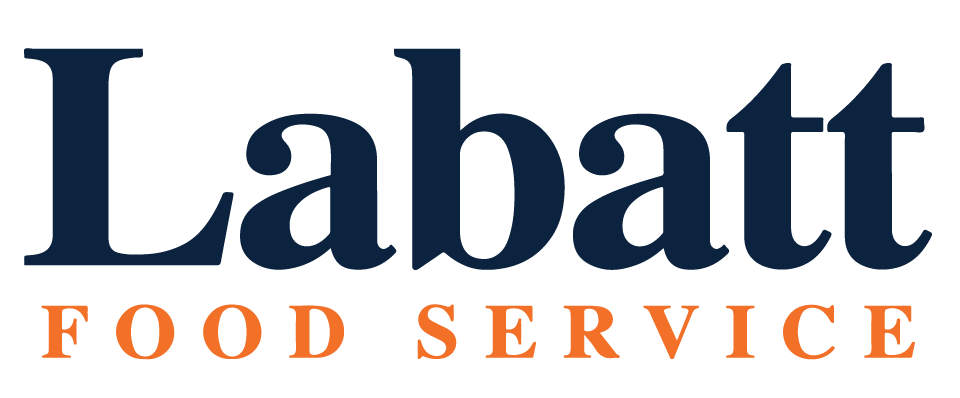Labatt Food Service Software Delivers; Drives Everything Except the Trucks
January 2017
San Antonio-Business Wire
With the recent re-launch of its custom e-commerce website for customers, Labatt Food Service (www.Labattfood.com) has solidified its reputation as “a software company that delivers food.”
“Labatt is constantly looking at the entire food service industry and we bring that knowledge to bear for our customers, effectively becoming consultants.”
Blair Labatt III, Director of Information Technology has worked at Labatt since 2004.
In fact, privately-owned Labatt delivers a lot of food. At more than $1.3 billion in revenues, Labatt is the ninth-largest food distributor in the nation, primarily serving Texas, Oklahoma, New Mexico and Arizona. The company has some 1,600 employees, five major distribution centers – San Antonio, Houston, Dallas, Lubbock and Albuquerque -- and a fleet of 250 trucks whose drivers deliver the right food at the right time to chain and independent restaurants, schools, military bases, hospitals and other customers.
While loading trucks with pallets of food and unloading them at a customer’s back door might seem a traditional, low-tech business, Labatt has revolutionized food distribution with software developed entirely by its own, in-house team of programmers and analysts.
The software drives everything – except the trucks, although every truck’s route is determined daily by a computer algorithm that knows where and when food is to be delivered and then instantaneously analyzes virtually every possible route that hits the best time windows for each customer. That single innovation, among many, has enabled Labatt to achieve 99 percent on-time delivery.
“We have just launched our third generation of web ordering and search software,” said Blair Labatt III, the company’s Director of Information Technology. “More than 89 percent of customer orders come directly to us electronically, from desktop computers, laptops, tablets and smart phones. Off-the-shelf technology doesn’t give either our customers or us the capabilities we all need, and that’s why we write our own software and then constantly update it.”
The rollout of the newest version of the website was seamless, he said, as customers quickly understood the advantages.
“For us, it’s all about helping our customers grow their business, whether it’s someone who owns one restaurant or a chain with 600 restaurants. That means accuracy, timeliness and information that lets them shop, buy name-brand products with reduced pricing and set a delivery time they can count on,” Labatt said.
“Our team has developed the business-to-business website for ordering food, software for warehouse robots that accurately fill and sort orders, a voice technology tracking system that essentially eliminates human errors in the warehouse, the truck routing software and a system we call ‘Where’s My Truck?’ so a customer can know at any time exactly where the delivery truck is and when it will get there,” he said.
“If you are running a restaurant or a cafeteria at a school or hospital or a huge military dining hall, you are dealing with constant demand, constant deadlines,” Labatt said. “You have to know that everything you need will be there on time, with the quality you want, and that the order will be complete. In the final analysis, our job is to make that happen with every single delivery.”
Labatt joined Labatt Food Service in 2004 after graduating from Princeton University with a degree in English and minor in computer science.
He manages a “skunk works” of some 20 programmers and 15 analysts who develop all the company’s software with the orientation of solving specific business problems in all areas of company operations – accounting, delivery, warehouse operations, inter-company logistics and customer services. The software team is recruited from universities large and small -- Texas universities, Ivy League schools, top universities on the west coast and in the southeast.
“Our programmers are code writers who partner with analysts,” he said, “and together they look at a business problem and ask, ‘How can we make that better?’ We want our analysts to have the mindset of executives, with the ability to think strategically about issues, customer needs, trends – all the things that can have an impact on our customers.”
“We get an avalanche of applications for analyst and programming positions,” Labatt said. “Besides computer science degrees we have people who are humanities majors – English, psychology, political science – as well as industrial, mechanical and electrical engineers. And, it’s an international group which includes personal backgrounds in Lebanon, India, Argentina, China and Vietnam. It all gives us a great mix of ideas and approaches that produces excellent results.”
The company annually offers eight highly-sought-after internships for programmers and analysts, he said, and that helps keep “best and brightest” pipeline full.
With this technology advantage, Labatt’s sales representatives spend very little time as order-takers and more time helping customers grow their business, he said.
“Labatt is constantly looking at the entire food service industry and we bring that knowledge to bear for our customers, effectively becoming consultants,” he said. “We are watching trends, innovations, examples of what works and what doesn’t, whereas many customers necessarily have a total focus on their specific situation.”
“We’ve worked to build a culture here that challenges both our employees and our customers to reach their full potential,” Labatt said. “Our commitment to software development plays a huge role in our drive for operational excellence, and it’s a major reason not only for our growth but for our capacity to serve more customers.”
With antecedents dating to 1910, Labatt Food Service was founded in 1940. Now under third generation leadership, the company’s mission is to reduce the cost of food distribution and to grow the business of its customers.
